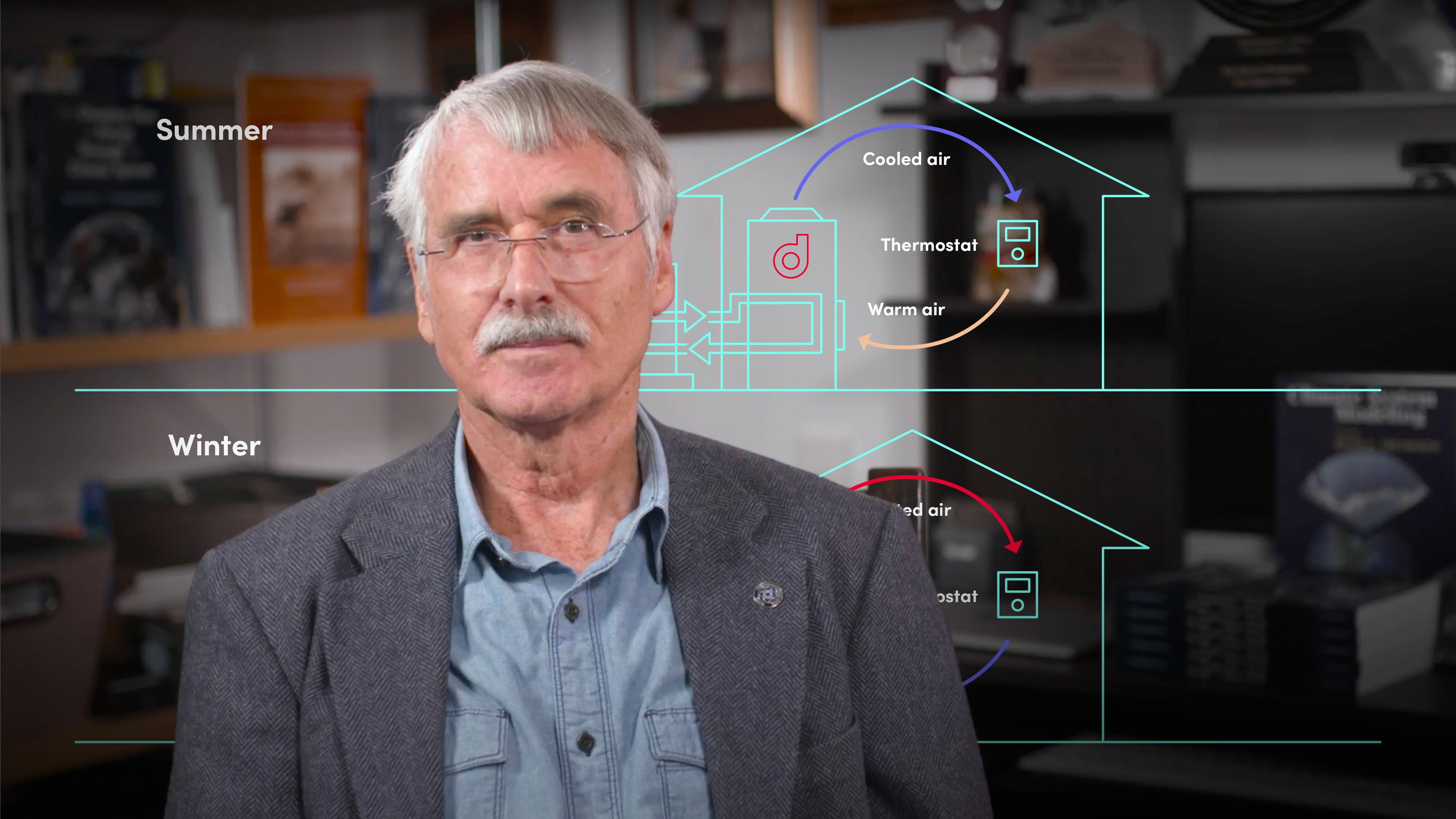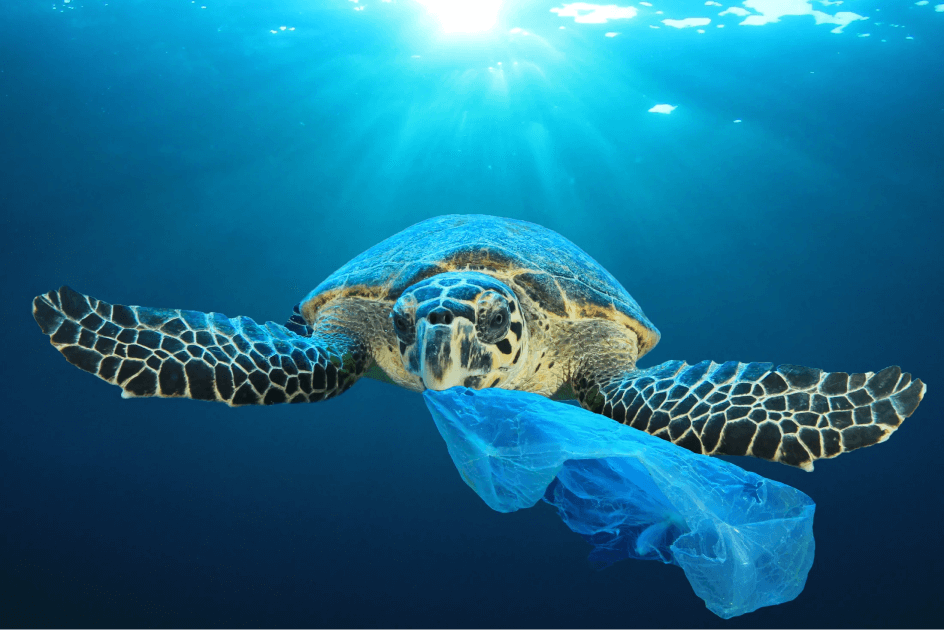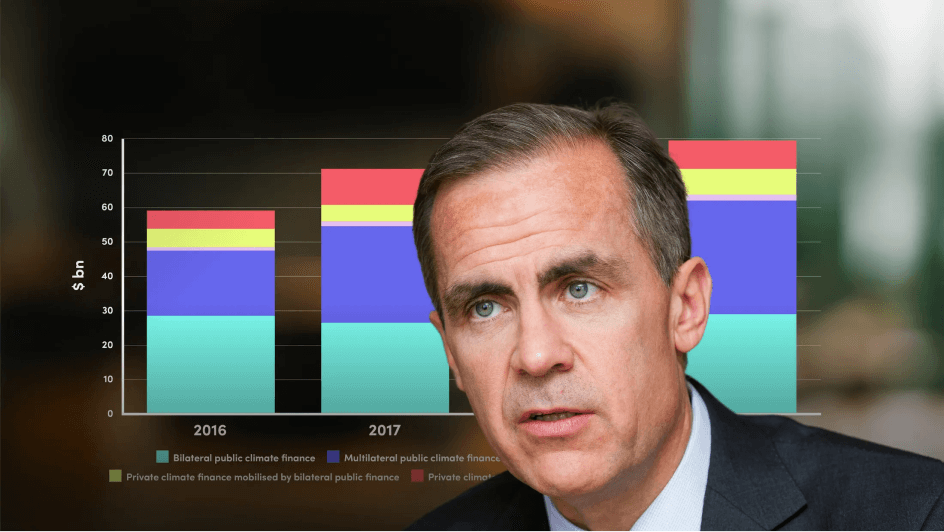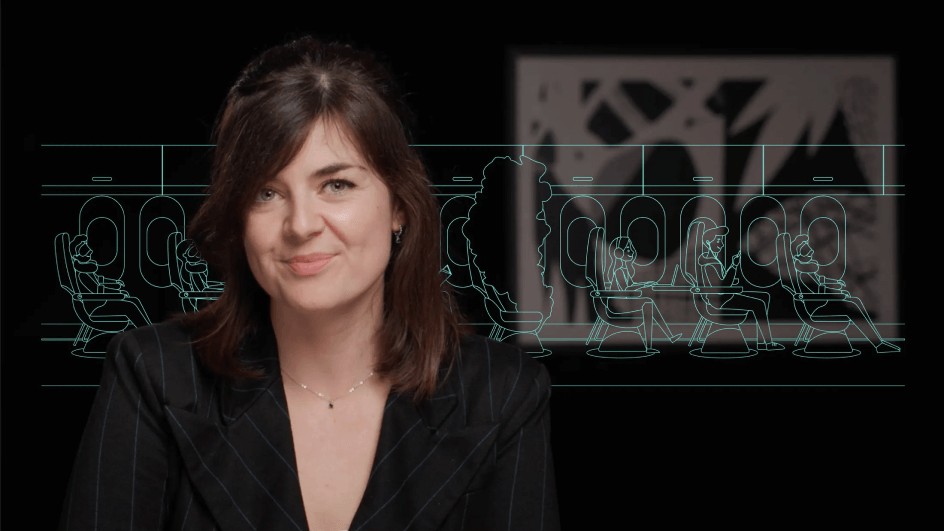
5 Ways We Can Reduce Our Carbon Footprint

Kevin Trenberth
Former Coordinating Lead Author of the IPCC
The climate crisis will require a global effort unlike anything we've ever seen. But how can we help on a smaller scale? Join Kevin Trenberth as he outlines a few ways individuals can revise their lifestyles to join the fight against climate change.
The climate crisis will require a global effort unlike anything we've ever seen. But how can we help on a smaller scale? Join Kevin Trenberth as he outlines a few ways individuals can revise their lifestyles to join the fight against climate change.

5 Ways We Can Reduce Our Carbon Footprint
11 mins 38 secs
Key learning objectives:
Understand how our lifestyles impact the climate
Outline changes we can make to live more sustainably
Overview:
Transitioning to a more sustainable lifestyle is all about making small, impactful changes. There are a few areas we can make the most impact including: using more efficient materials, switching to greener appliances, being mindful of how we heat and cool our households and utilising better methods of transportation.
How can we reduce the impact in efficiency?
The greatest gain in reducing energy use is through greater efficiency - cutting waste. Cutting leaks and improving insulation are most important. Insulating the attic should be your first step as approximately 25% of heat is lost through the roof. Increased efficiency applies also to electricity and appliances - replacing an old refrigerator pays for itself very quickly by reduced running costs. There is also a need for improved building codes to ensure more energy efficient houses and structures.
How can we reduce the impact in our households?
1. When you’re not in the room or using a device, turn it off. In the UK, 9-16% of electricity consumed in your home is used on devices in standby mode.
2. Switch to energy saving light bulbs. In old bulbs, only 10% of the energy used was for light and the rest was wasted on heat - which isn’t particularly helpful. LED bulbs, however, use 95% of their energy on light and they last longer - a win-win situation.
3. Don't put washed items in the dryer and utilise the clothes line - for free.
4. Be sure to recycle, recycle and recycle more. According to Stanford University, the more we recycle, the less will end up either incinerated or in landfills. Therefore, we’re saving energy, conserving resources and reducing air pollution, water pollution and greenhouse gases.
5. Consider installing solar panels on the roof of your home - especially if there is net metering in which excess energy generated goes into the grid, and power can be purchased at the same rate.
How can we reduce the impact of heating?
It’s vital to neither overheat nor overcool. In the summer, set your thermostat to approximately 24 degrees Celsius/76 degrees Fahrenheit. Likewise, set it to 19 degrees Celsius/66 degrees Fahrenheit in the winter.
Another fantastic energy saving tool is the heat pump. According to the IEA: “Heat pumps could satisfy 90% of global heating needs with a lower carbon footprint than gas-fired condensing boilers”. These pumps capture heat from an outside source and move it into your home. The only electricity used is that needed to move the heat from outside to inside, which is dwarfed by the heat delivered. And they work in reverse in summer, for cooling the interior.
Consider evaporative coolers. These cool the air in the home by using excess heat to evaporate water.
How can we reduce the impact of transport?
Transportation accounts for a whopping 25% of global CO2 emissions, mainly from car driving.
For short distances, cycling is becoming more popular worldwide. According to the Environmental and Energy Study Institute, in the European Union, cycling “prevents upwards of 16 million tons of carbon dioxide emissions per year”. It is then a great form of exercise that can reduce your chances of developing heart disease or cancer.
For longer distances, choose public transportation over driving. The more people using the same public transport, the smaller the carbon emissions. It’s hard to completely cut out long-distance transport but it is much easier to limit the unnecessary short journeys.
How can we make a difference politically?
The most profound impact you can make is to be politically engaged. This means voting for candidates who prioritise the environment. For example, if you would like to cycle but live in an area built for 4x4s, message your local authorities and campaign for better biking infrastructure.
Climate friendly policies are hugely popular. There is strength in numbers and politicians will pay attention if they know we’re paying attention. These messages must be carried forward as part of national and international policy with appropriate incentives.

Kevin Trenberth
There are no available Videos from "Kevin Trenberth"





















